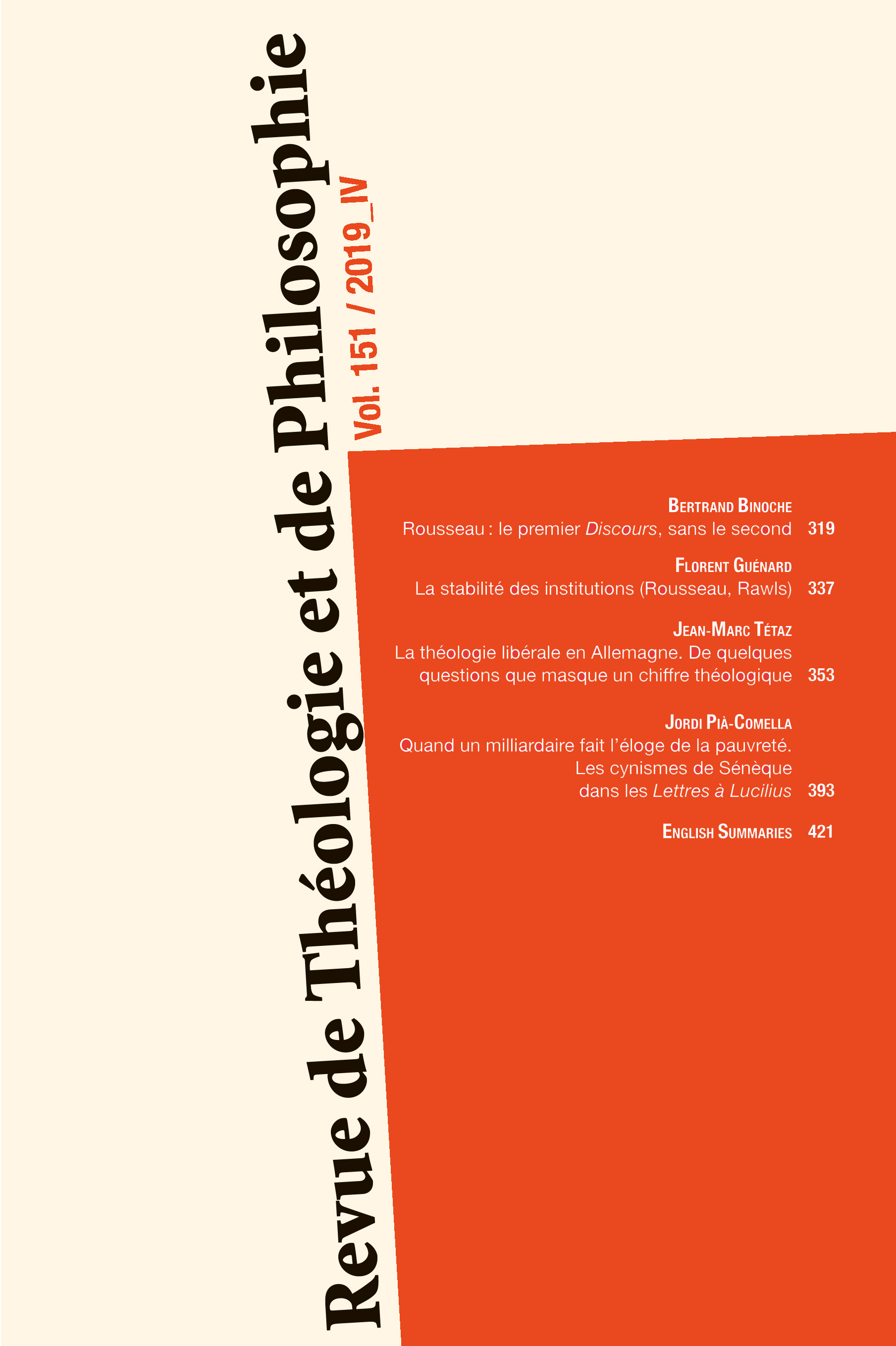Rousseau: The First Discourse, Without the Second One
Abstract
Instead of reading the first Discourse on the Moral Effects of the Arts and Sciences as a draft of the second one, an attempt is made here to read it for what it says, in order to understand both its enduring success and the difficulties which pertain to it. First, its success can be explained by the all-encompassing nature of the critique, which targets both the theologians and the philosophers, but also all of the institutions, and which concerns all histories, ancient and modern. Second, the difficulties can be analyzed through an examination of the main objections which were made against Rousseau’s thesis, and to which he replied, concerning the underdetermined character of the morality/sciences correlation, the supposed necessity to sacrifice the sciences in order to save morality, and the performative contradiction of his analysis. The debate would continue in the years of the French Revolution, we may consider that it was closed by Condorcet.
How to Cite
More Citation Formats
Issue
